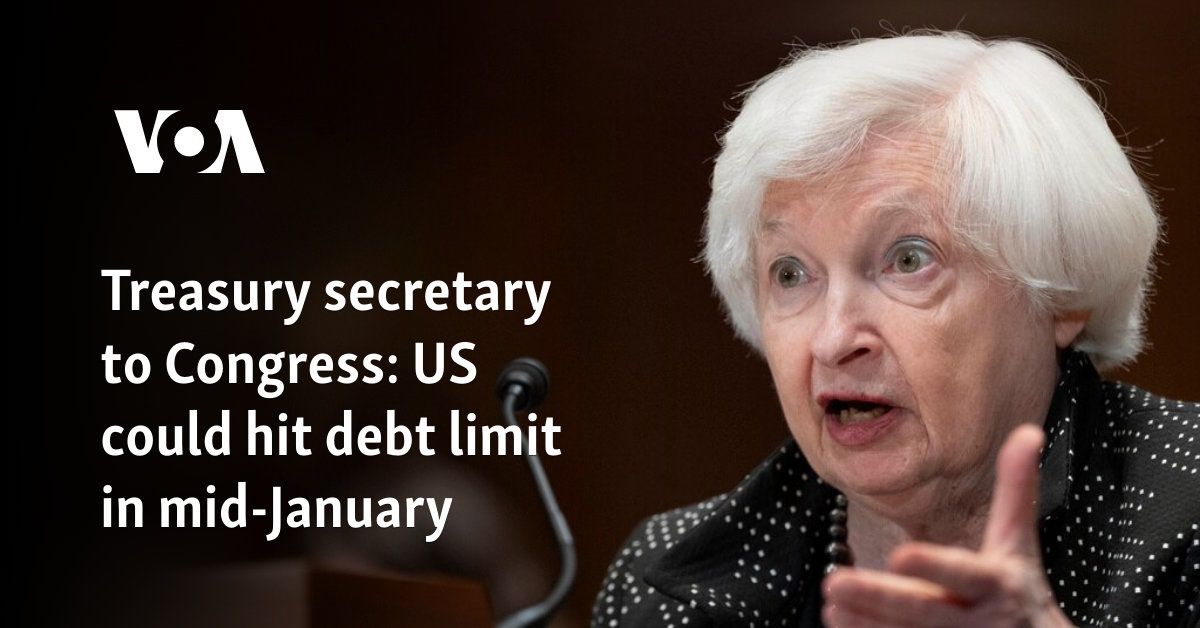US Treasury Warns of Debt Ceiling Risks as January Deadline Looms

Washington D.C. - The US Treasury Department has warned that it will need to take "extraordinary measures" to prevent the nation from hitting its debt ceiling, with potential effects set to kick in as early as January 14.
In a letter sent to congressional leaders on Friday, Treasury Secretary Janet Yellen stated that her agency expects to hit the statutory debt ceiling between January 14 and January 23. At this point, extraordinary measures will be used to prevent the government from breaching the nation's debt ceiling.
The department has previously deployed such measures to keep the government operating, but once they run out, the government risks defaulting on its debt unless lawmakers and the president agree to lift the limit on the US government's ability to borrow.
Yellen urged Congress to act quickly to protect the full faith and credit of the United States. The news comes as President Joe Biden recently signed a bill into law that averted a government shutdown but did not include President-elect Donald Trump's core debt demand to raise or suspend the nation's debt limit.
Congress had approved the bill after fierce internal debate among Republicans over how to handle Trump's demand, with some expressing concerns that refusing to act on the issue was a "betrayal of our country".
The US federal debt has ballooned across both Republican and Democratic administrations, currently standing at around $36 trillion. The spike in inflation following the coronavirus pandemic has increased government borrowing costs, with debt service expected to exceed spending on national security next year.
As of January 2, Treasury does not expect it will be necessary to take extraordinary measures this time due to a scheduled redemption of nonmarketable securities held by a federal trust fund associated with Medicare payments. However, Yellen warned that the situation is uncertain and lawmakers must act promptly to avoid risking default.
In the new year, Republicans plan to extend Trump's 2017 tax cuts and other priorities, but debate over how to pay for these measures remains ongoing.
